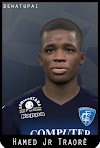I'm writing this quick review of Agnès Varda's Uncle Yanco on Monday, January 11, 2016. It's the evening of the day that the world learned about the untimely death of David Bowie, who just released his final album this past Friday. The quality of that new recording is so superb that I assume it must have stirred up anticipation in many of his fans of possibly seeing the great artist perform his music in a live setting once again, until our hopes were cruelly dashed this morning as we had to absorb the shocking and distressing news of his passing.
Of course, all that has nothing to do with the film at hand, at least not in any obvious sense. At the time that French director Agnès Varda was visiting California in the summer of 1967 (accompanying her husband Jacques Demy as he began working in Hollywood on his eventual 1969 film The Model Shop), David Bowie was a 20 year old aspiring English pop star fresh off the release of his first of two successive eponymous albums. The 1967 version of David Bowie wasn't a hit in the USA by any measure, and there was no clear indicator at the time that he would ever go on to reach the heights of artistic success and cultural influence that he'd go on to achieve. Meanwhile, Varda was busy exploring the West Coast and, among other things that she did during this extended stay in the Golden State, she made a film about an elderly relative whom she'd never met before. The man's name was Jean Varda, but at the time he was more widely known as Yanco. Even though they were actually first cousins to each other, the difference in years between them (he was in his early 70s, she was not yet 40) was significant, so after they made acquaintance with each other, he gave her permission to call him Uncle Yanco.
Regardless of however they or we choose to describe their familial blood ties, both of the Vardas, Jean and Agnès, shared with David Bowie a life-defining dedication to Art, and that, however tenuous, is the connection that I want to reflect on for a few minutes here. In the case of Jean/Yanco, what Agnès manages to capture in this slim 18 minute reel is a luminous display of the old man's creative endeavors in the "aquatic suburbia" of Sausalito's old waterfront houseboat village constructed on the western shoreline of San Francisco Bay, just north of the Golden Gate Bridge. The opening footage of the film, before the focus settles on Yanco's material, is a priceless guided tour of some of the most noteworthy and eccentric constructions that once lined the docks of what's now incredibly valuable real estate. The area was largely sanitized and commercialized over the intervening decades between now and then (this article tells a great story about the so-called "Houseboat Wars"), but this film offers a wonderful glimpse at what used to be a freewheeling outpost of bohemian living at its finest. I was fortunate enough to live in the Bay Area in the early 1970s and recall seeing several of these and similarly weird structures anchored just offshore, so there are some happy memories for me in a few of those early scenes.
But once Agnès coyly films the re-enacted first meeting of her and her "uncle" (including several takes of their well-rehearsed greeting and hug, as a tip-off of the artifice behind this supposed documentary), we're drawn into hearing Jean tell his life story (including just a few of the many names he could have dropped among the 20th century's most celebrated painters, novelists and critics) and seeing abundant evidence of Yanco's artistic principles made manifest. We're treated to a whirlwind survey of his studio as he talks us through a gallery of his work in multimedia collage and painting. His "artist's statement" in which he explains his method and subjects, is warm, natural and genuine, a convincing sign of Yanco's lifelong commitment to the creative process, by now so fully inhabited and finely honed as to erase any trace of pretension or posturing from his presentation. A benevolent and kindly patriarch of sorts for the then-burgeoning San Francisco hippie scene, Yanco comes across as a truly beautiful soul, a man who must have been quite an inspiration to those who met him in person, whose spirit still comes through powerfully nearly fifty years after his testimony and handiwork was captured on film. Even when he gets into his critique of the "establishment," his comments are born of an easy-going compassion for life and for people, rather than any residual bitterness or resentment left over from skirmishes he may have had earlier in life with the gatekeepers of conventional tastes and values.
So I guess this is where I draw the connection, however flimsy it may be upon closer analysis, between the filmmaker Agnès, the painter Jean and the musician David. That's how my thoughts fall into place this evening. Three individuals, representatives of three distinct generations but all servants of that great mysterious creative force that makes life so fascinating and unpredictable, so poignant and, yes, so tragic, when the time comes for those of us who revel in that creative mystery to be sadly reminded once again that even though Art endures, no Artist lives forever.
* * *
Here's a pretty terrible transfer (from an old VHS) of Agnès Varda's film. May watching it serve as motivation to go out and buy your own copy of Eclipse Series 43: Agnès Varda in California, which contains an impressive 2K restoration that is transcendentally beautiful, along with four other excellent films that I'll get around to reviewing here eventually. You can also hear me and my friend Trevor Berrett discuss the set on our Eclipse Viewer podcast, recorded last September. Just follow the link!
Next: Cours du soir









0 Comments